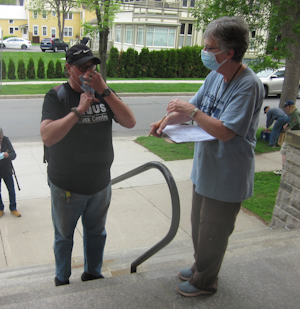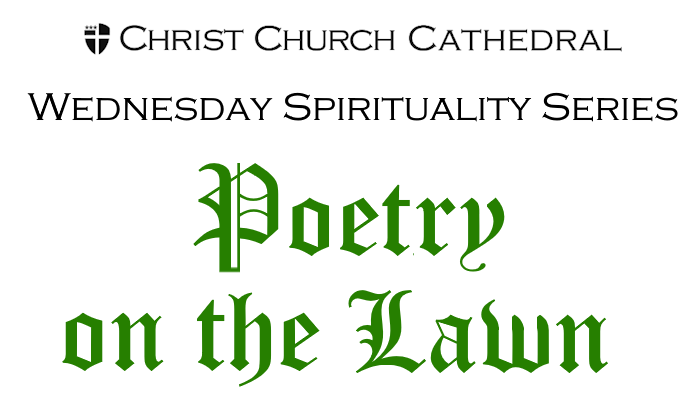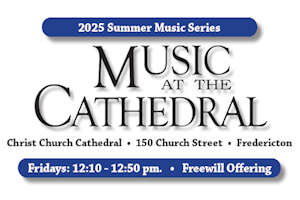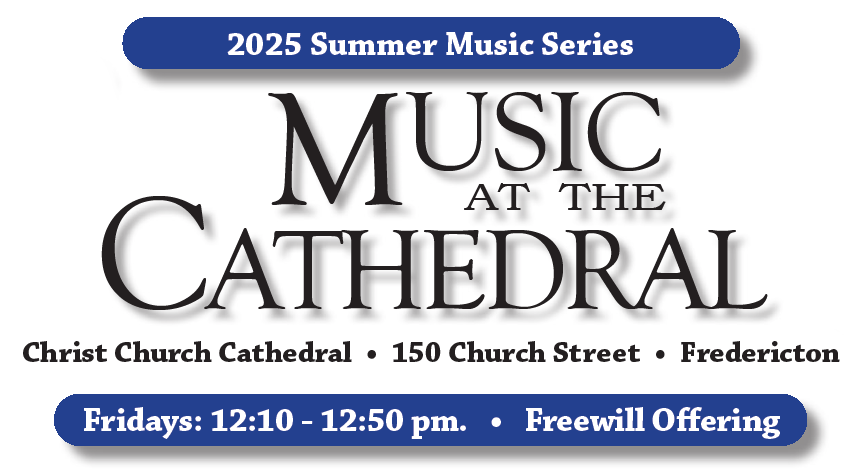
Suddenly, many cultures and identities flowed in harmony. Everyone not only heard but also understood one another and God's marvellous power. It was an emotional moment when communication and social cohesion were conveyed in such a positive way. People shared smiles and knowing looks as scriptural excerpts were read aloud in Hebrew, Chinese, French, German, Spanish, Swahili, Ukranian, Welsh and English.
Later, it occurred to me that we have a small Tower of Babel on the steps of Cathedral Memorial Hall for the Outreach Program on the last Monday morning of every month.

Nowadays the demographics of our Monday visitors have changed quite a bit. Each time I arrive for our gathering, it is important to wave and smile to those waiting. I call out marhaba (hello in Lebanese), hola (Spanish), ni hao (Mandarin), dobryi den (Ukranian), asalaam alaikum (Arabic), namaste (Hindi). In past years I occasionally needed other languages for the group such as anyoung haseyo (Korean) and shalom (Hebrew).

It is a real pleasure to watch people from across the world come together and share in God's love as we open our hearts and our hands to people-in-need in this city. Their gratitude is quickly and easily understood, no matter the languages spoken. It is a small glimpse of Pentecost Sunday all year round!
-- by Ann Deveau, Cathedral Outreach volunteer



